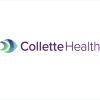Dive Brief:
- The healthcare services and technology market’s total earnings before interest, taxes, depreciation and amortization are expected to grow from $35 billion in 2016 to $50 billion in 2021, rivaling other segments of the industry.
- Data, analytics and information services will have the fastest growth rate at 16% to 18% over the next five years, while core administrative services are unlikely to see much growth due to automation.
- McKinsey estimates vertical integration represented as much as 50% of all healthcare deal activity in 2016 and 2017, and that trend is expected to continue.
Dive Insight:
Vertical integrations have and will continue to shake up the market, according to the report. Deals like CVS' plan to purchase Aetna, Optum's bid for DaVita and Cigna's move to acquire Express Scripts are shifting market trends and creating opportunities for products that address a "more comprehensive set of customers' needs."
UnitedHealth Group's Optum, Change Healthcare and Cognizant are highlighted in the report as examples of companies that have capitalized on their cross-market positions. Optum has been a trendsetter in vertical integrations, and that leadership is expected to continue as the company plans to invest heavily in machine learning, AI and natural language processing over the next three to five years.
The industry is currently lacking "integrated, cross-cutting platforms" akin to Amazon and Kayak that would give market players an opportunity to interact, specifically in five key spaces: Clinical integration and population health, primary care, consumer-led connected health, infrastructure and administrative services. McKinsey notes that a number of companies are unsurprisingly attempting to fill the platform void — including Amazon itself.
One fast-growing segment will be payment services, and specifically consumer payments. That growth is driven by the rise of high-deductible health plans and increased responsibility for payment on patients, who are now the third-biggest payer behind Medicare and Medicaid. Expect to see more payers and providers partner with healthcare tech firms to build customer payment solutions.
McKinsey anticipates the core administrative services segment of the market to stagnate as automation and digitization drive down the prices of current products and software and analytics gradually replace them.
Ultimately, McKinsey estimates that successful healthcare services and technology companies will have as much "skin in the game" across market segments as possible. "This approach shows confidence in the services delivered and helps reduce the risk for customers considering purchasing these services," according to the report. "As a result, we expect to see the move toward shared accountability continue."














